During the summer months it can be difficult to find a hotel room in Venice, let alone one that is reasonably priced.
At least, perhaps that was the reasoning behind these tourists' decision to pitch tents in the heart of the city.
In a photo sent to the local newspaper Nuova Venezia, a tourist appears to have pitched a tent behind the Scuola Grande di San Rocco, where visitors flock to admire the works of Venetian Renaissance painter Tintoretto.
A second photo, also sent to the paper, shows another tent on Campo Santa Maria Formosa, near the square’s famous 15th century church.
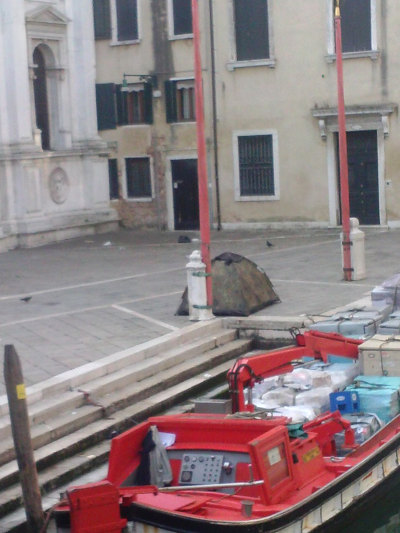
The second tent which was pitched on Campo Santa Maria Formosa. Photo: Nuova Venezia
According to the paper, the tents stayed in place until well after dawn and the campers were never reported to the police.
This isn’t the first time tourists have pitched tents in unlikely places in the city, with another tent recently spotted on the city’s Ponte della Costituzione (Constitution Bridge).
Hardly a week goes by without new tales of tourists misbehaving in Italy.
Earlier this month a tourists was photographed bathing half-naked in a fountain near St Mark’s Basilica in Venice, prompting outrage from Italians.
That same week vandals broke a finger off Pio Fedi’s famous statue of the Rape of Polyxena in Florence.

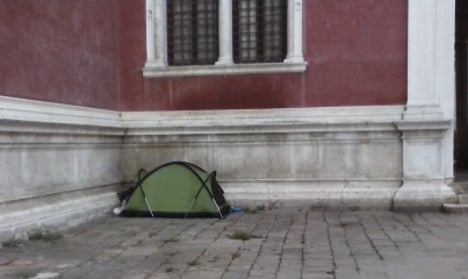
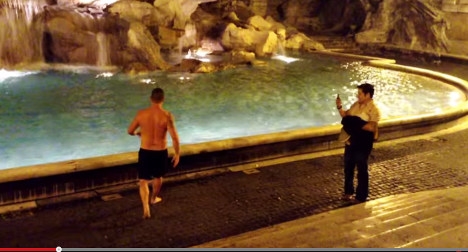
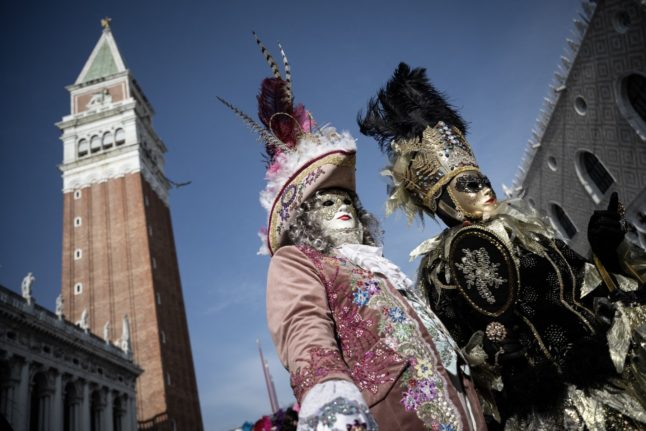
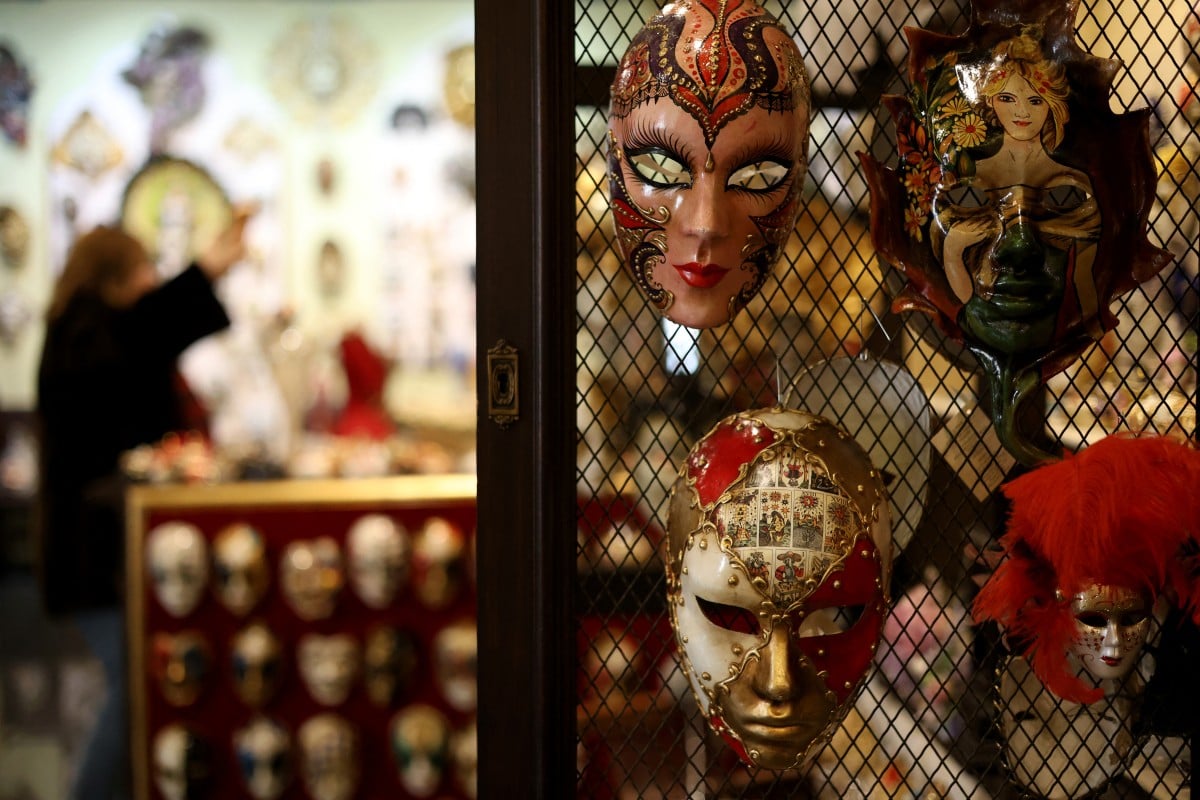
 Please whitelist us to continue reading.
Please whitelist us to continue reading.
Member comments